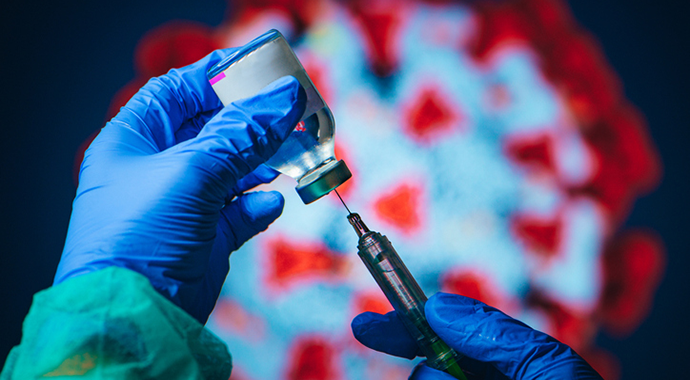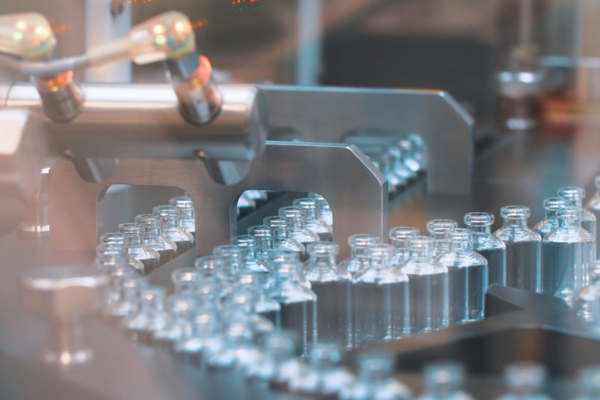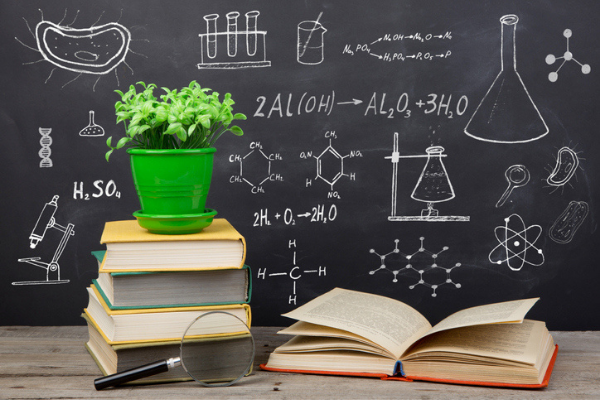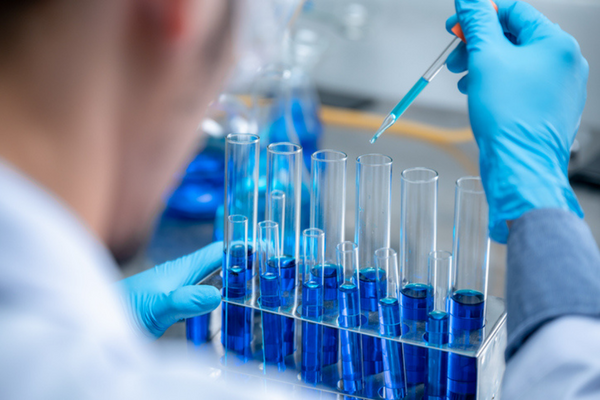
Key Takeaways:
- Dan Sutherlin shares his insight on what the drug development industry will look like in the next 20 years
- How a 1,000-piece jigsaw puzzle creates an accurate analogy for drug development
- Technology trends to look out for in the drug development industry
During your career at Genentech, you have worked in cardiovascular, oncology, immunology, and neuroscience. If you could develop a blockbuster drug in one of those four areas, which area would you select? And what would it treat?
This might be the toughest question to answer since there are so many disease areas where a transformative therapy would significantly impact patients’ lives. If I had to pick one, it would have to be a drug that effectively treats Alzheimer’s disease. A cure for Alzheimer’s would not only meaningfully improve the lives of so many patients, potentially giving them 10+ years of their lives back, but it would also positively impact the patient’s family members, who often serve as the primary caregivers.
Think about how things have evolved in terms of the drug development process over the last 20 years. Would you expect the evolution over the next 20 years to be more or less dramatic? Why?
Certainly, a lot has changed since I first started in the industry 21 ago. Design and data analysis tools are on everyone’s desktop, we operate in global teams, and biologics have made a huge impact on human health. However, history shows us that innovation and technology continue to develop quickly, making me believe that the next 20 years will result in an even faster pace of innovation when compared to the last 20.
I anticipate data to be harnessed in new productive ways, one or more novel modalities to emerge as a standard tool in the toolbox of medicinal chemistry, and new opportunities for organic chemistry to interface with protein and cellular based therapies. I am excited to experience and participate in the ground-breaking science that will enable new approaches to previously intractable targets and in more efficient drug design.
COVID-19 is spawning changes in how businesses operate. What recently-implemented changes in your labs would you expect will endure once the pandemic fades?
We have clearly gotten better at conducting many aspects of our business remotely. Where video chats once seemed awkward to me, they have quickly become second nature. As an illustration of this new way of working, we have recently recruited new scientists through an entirely virtual process, which we would have never entertained prior to sheltering in place. I have to believe that some aspects of this new way of communicating will endure and can provide efficiencies in the organization.
Going forward, it will be important to identify where remote connections can be productive while also not negatively impacting the many benefits achieved in a fast-paced, face-to-face, spontaneous, and collaborative environment.
What non-technical skills do you most highly value among your scientists at Genentech?
Curiosity, creativity, collaboration, and independence. Innovation comes from looking at difficult problems in unique ways and applying your technical expertise. Building on that creative spark through teamwork and feedback from others and then following up with the initiative to get things done is a recipe for success.
In what ways is a 1,000 piece jigsaw puzzle an accurate analogy for developing a drug? In which ways does that analogy fall short?
I feel especially qualified to answer this question now that I have assembled multiple puzzles during our recent shelter in place order! Unfortunately, in drug discovery you can’t look at the cover of the box and know what the end result should be; nor are you certain that there is actually a solution before you start. That said, there are many parallels where solving a jigsaw puzzle is similar to the drug discovery process.
For many early drug discovery projects, when you first get going, the task ahead looks daunting. You start slow and begin by collecting many data points or pieces of the puzzle into patterns. You zero in on subsections of the problem and build from your successes. After some persistence, a picture begins to emerge and you are in the groove, building to the final result! Most importantly, it is fun, requires focus, and you feel a great deal of satisfaction when you are done.
How have your parents influenced your leadership style?
My parents are even keeled and unflappable in the face of challenges or conflict, a characteristic that has definitely rubbed off on me and is part of my leadership style. This trait has served me well as a scientist, member of a team, and a leader on many occasions when unexpected events, data, or differences of opinion can have the potential to create uncertainty and tension. I do have to guard myself against defaulting to this tendency in all situations however. An easy going attitude can be perceived by others as a lack of passion or drive, proof that leadership traits that are often valued can also be overused, depending on the situation.
What technology trends are you most closely following for potential implications for your business group?
I am watching many new approaches, but there are two in particular that have the potential to impact our success in developing novel medicines for patients. The first would be technologies that help us increase the efficiency of the design-make-test cycle. Improvements in our ability to predict the in vitro and in vivo properties of the molecules we make prior to synthesis can greatly impact the resources and time it takes to develop drugs and biological tools. Ultimately improved predictions can be incorporated into the design process, increasing the options for a scientist to consider. Machine learning and AI techniques are beginning to show promise in some of these areas, but there is plenty to learn until we fully understand the limitations and potential of the technology.
Secondly, we are keenly interested in novel approaches that have the potential to expand the scope of druggable space. This includes new ways of modulating targets, such as directly targeting RNA or identifying cryptic pockets, and the potential to expand beyond the “rule of five” druggable space through the use of bivalent molecules, macrocycles, or small molecule protein conjugates. To me, it is exciting to be a medicinal chemist at a time where we will have the opportunity to contribute many of these novel approaches and explore where each technology best fits into our strategy and a diverse portfolio.
What’s the one trait that has been most instrumental in your career success?
I think I have been the most successful in my career when I have been able to synthesize information, often disparate and complex, into an effective solution, strategy, or understanding. Perhaps that trait can be described in one word as “insight.” Scientists are routinely collating diverse data points to determine the next experiment. As a medicinal chemist, I believe I have leveraged this insight earlier in my career in compound design and to better understand the biology of the target I am pursuing. As my career progressed, I have found that the ability to synthesize information effectively has helped in collaborations as a team member and as a leader of teams, primarily related to bigger picture scientific and organizational strategy.
What have you learned about mentoring from your Genentech colleague, Wendy Young?
Wendy has been a fantastic mentor and I have learned, and continue to learn, through her direct advice or simply from observing her as a leader. Wendy puts a premium on department culture, a focus that can sometimes be less valued in a technical environment.
She is also not afraid to challenge the status quo and entertain new ways of thinking about how a problem can be approached or addressed. I can think of ways that this attribute has paid off in our work scientifically and organizationally. Wendy is also very thoughtful, authentic, and caring. People always have her full attention when they are interacting with her and you know she has your best interest at heart while also balancing the needs of patients and the organization. These are just a few of the lessons I have learned from Wendy’s mentorship that I try my best to take forward as a leader.
You studied as an undergraduate in Florida, and attended graduate school in California. Which state, all things considered, has the better beaches?
I like to swim when I am at the beach, so I prefer the beaches in Florida where the water is a lot warmer! If I was a surfer though, I would probably prefer California - bigger waves.

Dan is a Vice President of Discovery Chemistry in the Genentech Research and Early Development organization. In this role Dan leads the Discovery Chemistry Department that is composed of many talented medicinal, computational, cheminformatics, and analytical chemists who leverage a variety of scientific techniques and principals to design and synthesize medicinally active small molecules.
Dan earned his PhD from UCLA and completed postdoctoral work at UC Berkeley before starting his career at Genentech in early 1999. Since that time, Dan has contributed to the discovery of several Genentech development candidates and has worked in the oncology, immunology, and neuroscience therapeutic areas and on multiple target classes. He was promoted into his current role in 2018 and prior to that was a Director in the Discovery Chemistry Department.
This article has been edited for length and clarity. The opinions expressed in this article are the author's own and do not necessarily reflect the view of their employer or the American Chemical Society.
Copyright 2022 American Chemical Society (All Rights Reserved)














